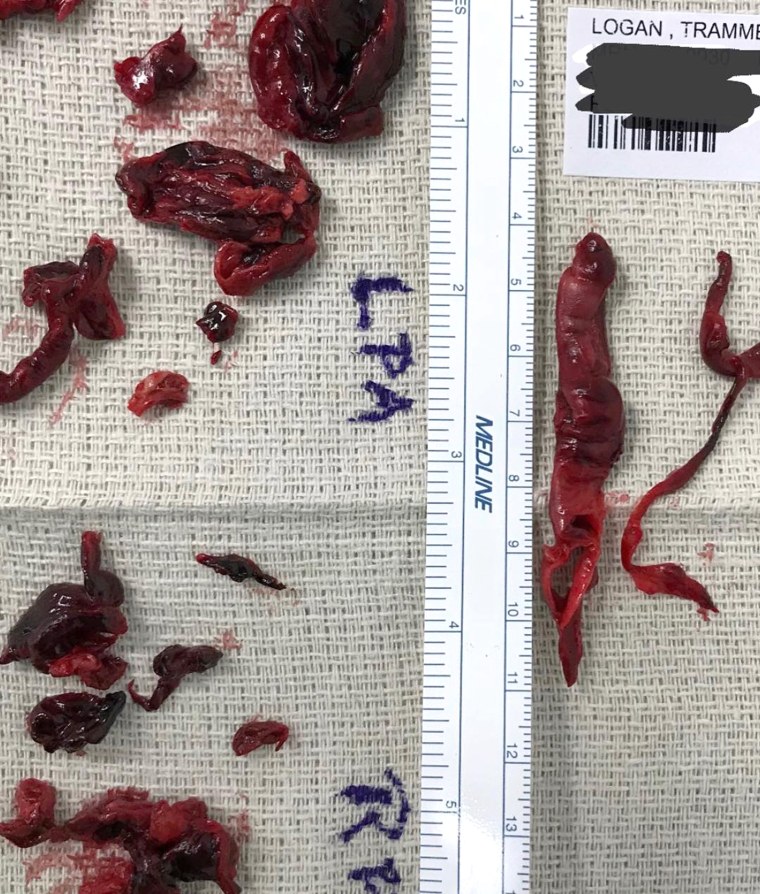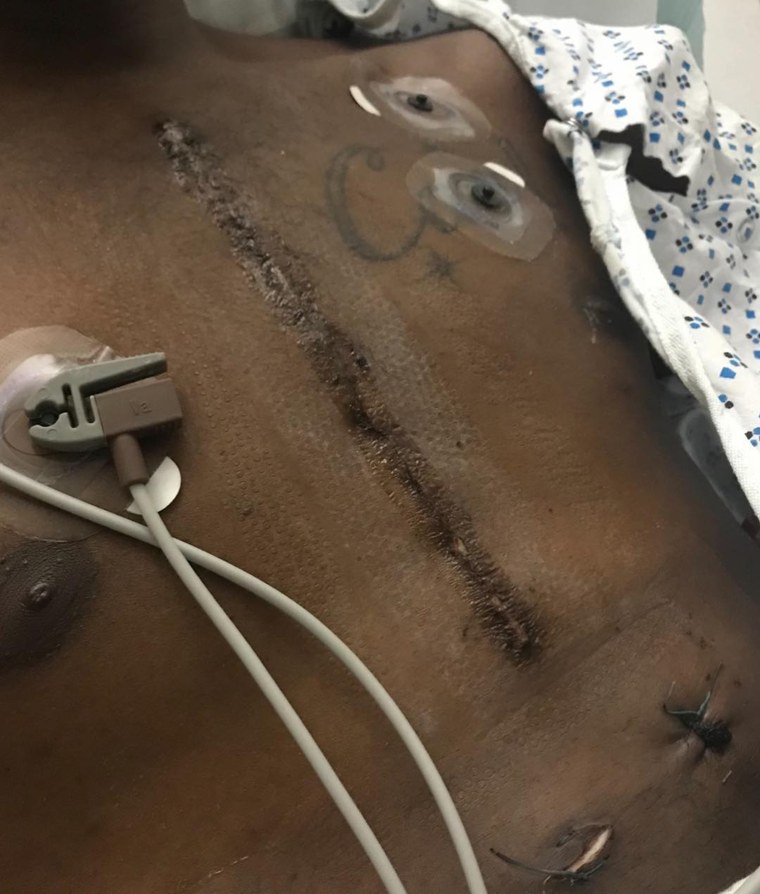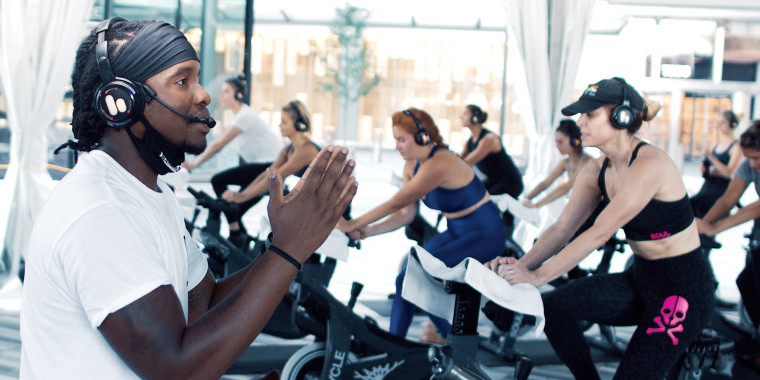In 2018, SoulCycle instructor Trammell Logan was leading high-intensity spin classes most days of the week. He had loved fitness from a young age, and had a background in dance and martial arts, and believed himself to be in good health.
When he began to feel out of breath early into one SoulCycle class in January 2018, he knew that something was wrong. That shortness of breath, paired with some bodily pain and feelings of blockage, eventually progressed to flu-like feelings and night sweats. On February 1, he went to a doctor, where he was diagnosed with a heart murmur. The next day, he booked an Uber to head to a meeting — but he collapsed as he got in the car.
"Instantly, my body just felt like it went into shock," Logan said. "Everything went down from that point. It was cold outside, but I started to sweat. I started to feel like I couldn't breathe. ... I realized that something was really wrong. I couldn't read, I couldn't talk."
Logan was quickly brought to a hospital, where he was told that he was experiencing a pulmonary embolism and that his symptoms had been brought on by a drop in his oxygen levels.
"When they saw my oxygen level, they said, 'You should be dead,' pretty much," Logan recalled. "(The doctor said) 'The only thing that saved your life is whoever is watching you from above and the fact that you work out so much.'"

He underwent open-heart surgery and had over a dozen blood clots removed. Logan said that he was in the ICU for some time and lost 35 pounds. Even still, he was eager to get back to his fitness-filled lifestyle as soon as possible. While it was slow going at first, he was able to adjust and soon was "working out fine" for the better part of two years.
"Fast forward to last-year, to COVID in March, when everything shut down," Logan said. "I got COVID a week after that."
Logan said that he mostly only experienced minor symptoms in his lower body, and the symptoms went away after about four days. However, several months later, he suffered a stroke. Some studies have linked an increased risk of stroke to COVID-19 diagnosis.

"In May ... I was on the phone with my brother and I went to wash my hands and once I finished washing my hands, my right hand just stopped working. I couldn't move my right hand at all," Logan recalled. "When I went to say something was wrong, I lost my speech. I couldn't speak."
Logan said that by the time his brother, who lived just across the street, came to check on him, his speech had started to come back, but he "still felt weird." He was hesitant about going to the hospital because of the ongoing pandemic, but after speaking to several friends with medical experience, he went to the hospital, where he was treated.
Logan said that dealing with the health crises in rapid succession was "extremely frustrating," especially since the various conditions "came out of nowhere."
"I've always been really healthy, I didn't have my first drink until I was 26 years old, I've always been passionate about what I eat and staying active, so it was frustrating, to not know your body," Logan said.
He said that recovering from the stroke was extremely difficult and compared it to "rebuilding" after a disaster. Logan said that it was a struggle to just sit up, and walking to the bathroom became an accomplishment.

"Mentally, it was extremely hard," Logan said. "You go from teaching 27 classes a week and being active to that, in the blink of an eye. You were looking at death and possible brain damage and lifelong fear of 'What if that happens again?' Once you have a stroke, they can't say it'll never happen again. You have to be hyper-aware of where you are mentally and limit any anger or stress in your daily life, because high blood pressure can lead to another stroke. You gain a lot of perspective on life and just how fragile life is."
Logan said that he knew almost immediately how important mental health would be to his recovery. He "instantly" began to use tools like allowing himself to feel his emotions deeply, and communicating with others in his life to "do the work" of recovering mentally. Logan said that he also made sure to work on breathwork and meditation.
"The key to resiliency is honesty and accountability, but then also not allowing yourself to be victimized while you do allow yourself to feel what you need to feel, with the goal and mindset of learning from it," Logan said.
While Logan is now back on the bike at SoulCycle, he said it took him a lot of time to feel ready enough to be leading classes again. Now, he tries to embody the balance between physical and mental health.
"I became an example of everything we're talking about (in classes)," Logan said. He added that he tries to share his own coping strategies and mental health awareness with other riders, and hopes that those who are struggling can find solace in his words or feel inspired to reach out for help from their loved ones or mental health professionals.
"A lot of times, our mental health is attached to these preconceived notions ... A lot of times what we need to do is really sit down with yourself and understand and learn and unpack your surroundings and your expectations and programing," Logan said. "The more you take care of yourself physically, and visualize working out and connect that to your mental health, and then seek guidance from a friend or therapy or whatnot, that would be my advice for anyone."
Related:



